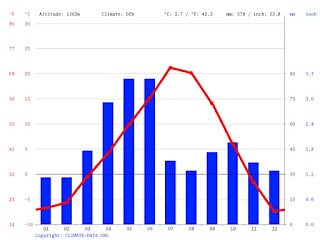This is Croesus, the last Lydian king. In 546 BC, he misunderstood the prophecy from Delphi, which said that "If Croesus attacked the Persians, he would destroy a great empire". Croesus went to war with Persia which ended up with the destruction of his empire...
Apart from being famous for his disastrous prophecy interpreting abilities, Croesus was also famous for minting the earliest known gold coins known as "Croeseids". They always depicted lion and bull in this pose, and the meaning of this scene is still debated...
Finally, Croesus was also famous for the fact that no one knows what actually happened to him after he was captured by the Persian king Cyrus the Great...
In the version of the story written by Bacchylides, Croesus tried to commit suicide, by burning himself on a pyre. But at the last moment Zeus sent the storm with rain which extinguished the fire, and then Apollo took Croesus to the Hyperboreans where he lived happily ever after
In the version written by Herodotus, Cyrus captured Croesus and ordered for him to be burned to death on a pyre. But at the last moment, Croesus was saved from death by Apollo who sent a violent storm with rain which extinguished the flames. Cyrus then made Croesus his advisor..
The fact that we don't know how Croesus ended up on the pyre and what happened to him after he was saved, is not that interesting (to me at least). What is interesting (to me at least) is who and how saved him...
In the Bacchylides' version, Zeus, the God of Thunder, sends the rainstorm which extinguishes the flames. But in the Herodotus' version, it is Apollo who sends the rainstorm which extinguishes the flames...A weird thing for a Sun god to do...
A lot of people say that Herodotus was "known" to have written crap...But maybe not. Maybe Herodotus just had access to information other Greeks didn't...
Homer pictures Apollo on the side of the Trojans, fighting against the Achaeans, during the Trojan War. Believe or not the Hittite records, which called Troy "Wilusa", identify Trojan tutelary deity as a god named Appaliunas (A-ap-pa-li-u-na-aš), usually identified as Apollo...
Now there is a recently translated Hittite document which talks about a peace contract made between Hittite king Muwatalli and Wilusa king Alaksandu...The kings swear not to break the contract and list their deities as witnesses...
And in that document, one of three gods guaranteeing the terms of the treaty on the side of Alaksandu is A-ap-pa-li-u-na-aš who was described as the "Storm-god of the Army"...
Well, I guess, a storm god could easily send a rain storm to extinguish the flames of the Croesus' pyre...Right?
You know how you always wandered (well I did anyway) why Greeks were so afraid of lyre playing Apolo? They weren't. They were afraid of A-ap-pa-li-u-na-aš...
The same way Serbs were afraid of Sveti Ilija Gromovnik (St Elijah the Thunderer), The Thundering Sun. Serbs celebrate him at the end of summer and beginning of autumn. The moment when summer (represented by a bull) ends and autumn (represented by a lion) begins. Lion and bull???
In Serbian folklore, St Elijah is a weird character indeed. He is both the sun god (Helios, Veles) and storm god (Zeus, Perun)...Like A-ap-pa-li-u-na-aš??? I talked about St Elijah in my article "Thundering sun god"
He gets so angry every year around his pattern day, 2nd of August, the hottest part of the year, called in the Balkans "Kresovi, Krijesovi" (fires), that he "wants to burn the world to cinder". Just like any real scary sun god would do...
But he doesn't...His wife/sister Ognjena Marija (Burning Mary, the ever hotter summer earth) calms him down...After St Elijah calms down, his wife turns to Blaga Marija (Mild, Kind Mary, the ever cooler autumn earth)...
And right then, at the end of summer, beginning of autumn, the temperature starts to decrease and the first autumn rains arrive, the world is saved...By the way, Serbs believed that these rains were brought by St Elijah himself...As any decent thunder god would have done...Hence Elijah (Helios) "The Thunderer" (Zeus)...
Climate chart for Belgrade, Serbia...
In Serbian the expression "On vedri i oblači" means "he rules", "he has absolute control, absolute power". Literally this expression means "he makes the sky clear and cloudy"...
Originally the all powerful one was the Sky God...I talked about this in my article "The power of the thunder giant"
Was the original Apollo, "A-ap-pa-li-u-na-aš", before Greeks borrowed him from the Anatolians, one such god? The sun god + storm god = scary MF who can destroy your crops, dry out your wells, flood your houses, kill you with fire and lightning and disease? I believe so...
Finally, did you know that apparently no one knows what Croesus's name means??? Croesus comes from Latin Croesus, from Greek Kroîsos (the name has no further etymology)...
As i said he was famous for his gold, and for the pyre...Now Ancient Greek word for gold was χρυσός (kʰryː.sós)...Was this the root of his name? Golden king? Just misspelled???
At the same time Slavic word Kres, Krijes, Kris means "fire" but also "ritual summer solstice bonfire" representing the sun's fire...
Looks very much like Croesus's pyre...And sounds very much like Croesus...Probably a coincidence...





χρυσος means gold in Greek (generally transliterated into an English alphabet spelling as chrysos).
ReplyDeleteRegarding Kroîsos, it would not be written this way in Greek. The "oî" is generally transliterated into Greek as "υ". The "K" could be transliterated into Greek either as Kappa or Chi. If transliterated as Chi, then obviously Kroîsos spelled properly in Greek is Χρυσος, meaning Gold.